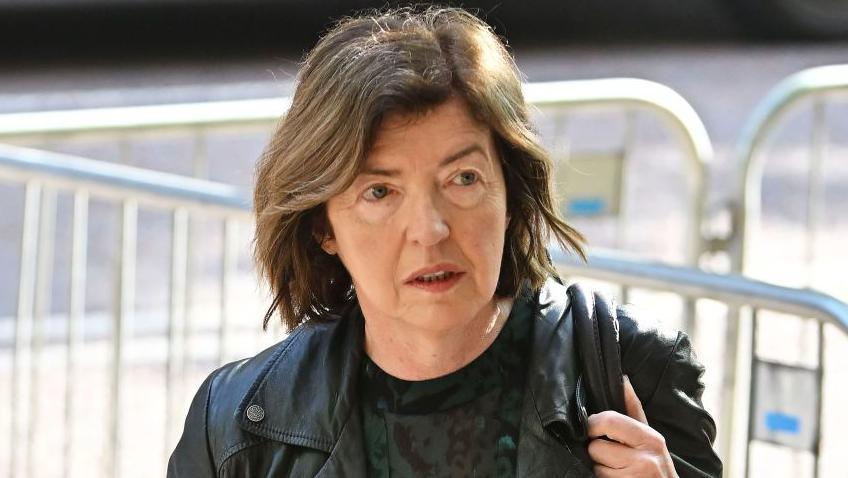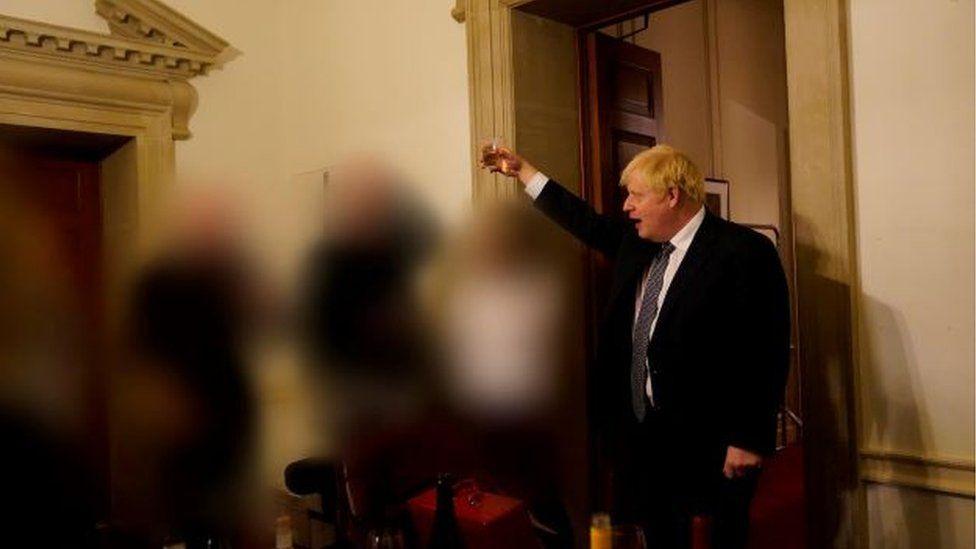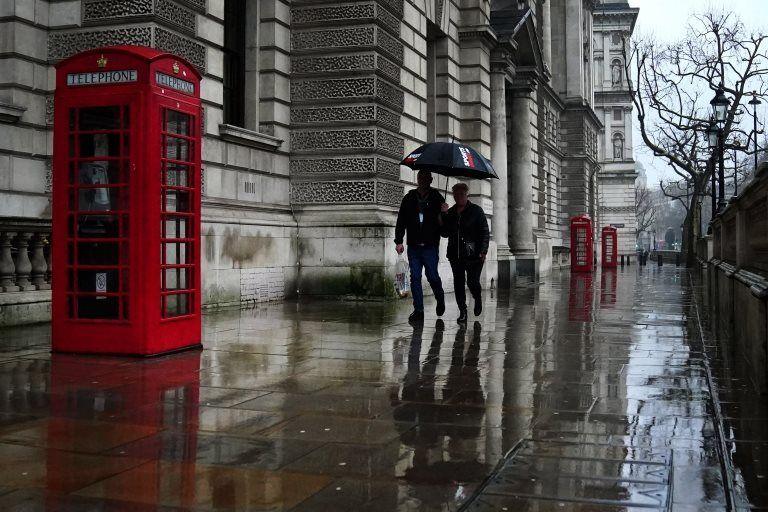Who is Sue Gray, Keir Starmer's former top adviser?

- Published
Sue Gray has resigned from her role as the prime minister's chief of staff, three months after the Labour Party came to power.
She said she "risked becoming a distraction" from the government's work, after revelations she was paid more than her boss, Sir Keir Starmer, landed her in the centre of a controversy.
Ms Gray had also been the subject of negative stories alleging clashes with other senior officials, including Labour's general election campaign chief, Morgan McSweeney, who has replaced her as the PM's top adviser.
She is set to take up a new post as the PM's envoy for nations and regions.
In her role as chief of staff, Ms Gray was one of the government's most powerful figures. Her wide-ranging role encompassed controlling access to the prime minister and helping to ensure the government's policies were put into effect.
Before her work with Labour, she spent decades as a civil servant.
She became a household name as the Partygate investigator, and her critical report into Downing Street lockdown gatherings contributed to Boris Johnson's downfall in 2022.
When it emerged the following year that Sir Keir had approached her to advise Labour on the challenges of moving from opposition to government, some Tory MPs were incensed and said it undermined her report.
Sue Gray quits as Sir Keir Starmer's chief of staff
- Published7 October 2024
Starmer defends Sue Gray after reports of No 10 rifts
- Published15 September 2024
Drunken No 10 party culture laid bare in report
- Published25 May 2022
Ms Gray resigned from the civil service in March 2023, but had to wait until September to take up her role with Labour after Acoba, the committee that vets former ministers’ and senior officials’ appointments, recommended a six-month break.
The previous Conservative government said she had broken civil service rules by failing to declare her contact with Labour over the job offer. Labour insisted all rules were followed and branded the finding a "political stunt".
Having worked in the civil service since the 1970s, Ms Gray had vast experience of government and was seen as particularly useful to Sir Keir, who along with many in his shadow cabinet, had never held a ministerial position.
'A lady called Sue'
In his memoir, Liberal Democrat former minister David Laws recalls being told by a colleague: "It took me precisely two years before I realised who it is that runs Britain.
"Our great United Kingdom is actually entirely run by a lady called Sue Gray, the head of ethics or something in the Cabinet Office - unless she agrees, things just don't happen."
Ms Gray joined the civil service straight from school and worked her way up to the Cabinet Office where, for six years, she led the government's Propriety and Ethics team, which provides advice to departments on standards issues.
Polly Mackenzie - who worked as a special adviser in the Cabinet Office - told the BBC's Profile programme in 2017: "Sue has been there for so long, she knows everything that anybody has ever done wrong."

A photo released with the Partygate report of Mr Johnson at a gathering in No 10 Downing Street
In 2017, one of Sue Gray's investigations forced Damian Green - then one of Theresa May's most senior ministers - to step down after he was found to have made "inaccurate" statements over what he knew about claims pornography had been found on his office computer in 2008.
She also investigated claims of sexual misconduct by the minister towards journalist Kate Maltby, ruling that her claims had been "plausible".
Speaking to the BBC, Ms Maltby said: "What impressed me most about Sue Gray was how seriously she took her duty of care to complainants... she was determined to listen to junior people, and not let senior staff off the hook.
"I found her profoundly moral in a way that isn't normally seen in Westminster."
'Disrupter'
Ms Gray's knowledge of ministers' private interests is said to have been useful to prime ministers carrying out rejigs of their team.
Chris Cook - an ex-BBC journalist who now works for news website Tortoise - said one sign of a forthcoming reshuffle would be when Sue Gray's office furniture had been re-arranged.
After 20 years, she left the Cabinet Office on secondment to work at the finance department in Northern Ireland's government.
When a job to lead the Northern Ireland civil service became available she applied, but did not get it.

Ms Gray has spent much of her career in the government buildings of Whitehall
Unusually for a normally private individual, she gave an interview to the BBC admitting she was "disappointed" she did not get the top job and suggested she may have been seen as "too much of a challenger, or a disrupter".
In 2021, she returned to the Cabinet Office leading on matters related to the Union and the constitution.
She may have spent the bulk of her career in the civil service, but in the late 1980s she did take a career break to run a pub near Newry in County Down, called the Cove Bar, along with her husband, country and western singer Bill Conlon.
Partygate
She told the BBC: "I loved it, loved it at the time, I'd never do it again."
In 2021, Ms Gray was catapulted into the limelight when she was given the task of investigating whether Covid rules had been followed in government during the pandemic.
Her final report concluded that staff had partied in Downing Street while the rest of the UK was in lockdown, with the approval of their bosses.
She said many events "should not have been allowed", and then-Prime Minister Mr Johnson "must bear responsibility".